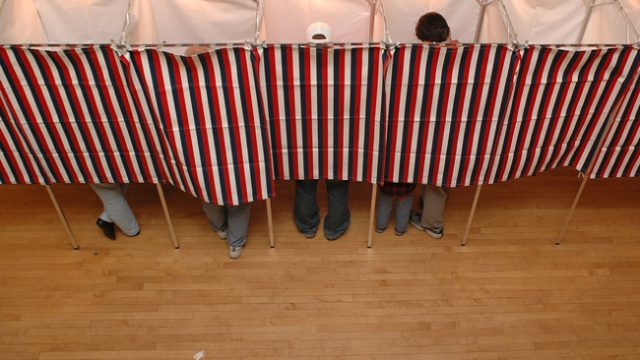How You Should Probably Vote: Yes On Measure 1

The abortion issue is a fascinating one, because I believe a sea change of opinion on this issue is in the offing.
Allow me to explain.
Despite America’s evolved and evolving attitudes on other controversial issues – gay marriage, drug legalization, unmarried cohabitation, contraception, etc. – the needle doesn’t seem to be moving much on abortion.
Case in point, a national CNN poll from back in January asked respondents about their opinions on the morality of things like pornography, gay marriage, marijuana use, etc. Not surprisingly, they found majorities in support of the morality of all those things, except abortion.
On abortion, a majority said they found it immoral.
Here’s another case in point: Forum Communications recently engaged the University of North Dakota to poll the state’s voters on Measure 1, the pro-life constitutional amendment on the November ballot (and the subject of this post). I was surprised by how much support a “yes” vote on the measure got. The pro-abortion activists in the state are well organized, and have flooded social media with their messaging, yet 50 percent of poll respondents said they’re voting “yes.” Just 33 percent said they’re voting no.
But more surprising was the age breakdown. “When grouped by age, respondents 18 to 30 were most likely to vote in favor of the measure at 62 percent, compared to 52 percent of those 31 to 45, 43 percent of those 46 to 65 and 51 percent of those 66 or older,” reported the Fargo Forum.
It seems that North Dakotans are, for the most part, pro-life. But the most pro-life demographic seems to be younger North Dakotans.
That speaks to a staying power for the pro-life position that other socially conservative causes – opposition to gay marriage, for instance – simply don’t enjoy.
I think it also speaks to a change coming in attitudes about abortion which has a lot to do with how increasingly easy it is to avoid unwanted pregnancies.
Let’s face it, contraception is pretty easy to access these days. Whether we’re talking about condoms or “the pill,” you can get it easily in pretty much every community in America (critics of the Supreme Court’s Hobby Lobby ruling won’t agree, but I’m not sure they’re living in reality). In most places, you can even get contraception for free from a local health clinic.
So really, there just aren’t a lot of excuses for unwanted pregnancies. And in instances of rape, even most pro-life people are willing to provide an exception.
I think younger Americans, who are far removed from the era of desperate women impregnated because contraception wasn’t available or was seen as immoral, have a hard time understanding why anyone needs to have an abortion when the steps needed to prevent pregnancy are so easy.
Increasingly, abortion is looking less like a necessary “right” to protect the health of women than a business opportunity for organizations like Planned Parenthood.
Measure 1 in North Dakota recognizes something that most North Dakotans believe to be true. That life exists at every stage of human development, including those in the womb, and should be protected by law.
The majority of citizens in this state who believe that may reach that conclusion by many paths. Some may see it as religious doctrine. For others – atheists like myself, perhaps – it is a self-evident scientific reality. As a libertarian-minded conservative, I have little desire to meddle in the personal health choices of others, but if you believe that life begins at conception (and I don’t see how you could believe otherwise, any more than you can believe that the earth is flat) then you must recognize that the woman’s right to her body and her health must be balanced with the life gestating in her womb.
As a society, we should strive to strike as equitable and compassionate a balance as possible, and we can do it.
Here’s the text to Measure 1. It adds one simple sentence to the North Dakota constitution: “The inalienable right to life of every human being at any stage of development must be recognized and protected.”
I’m voting yes.




